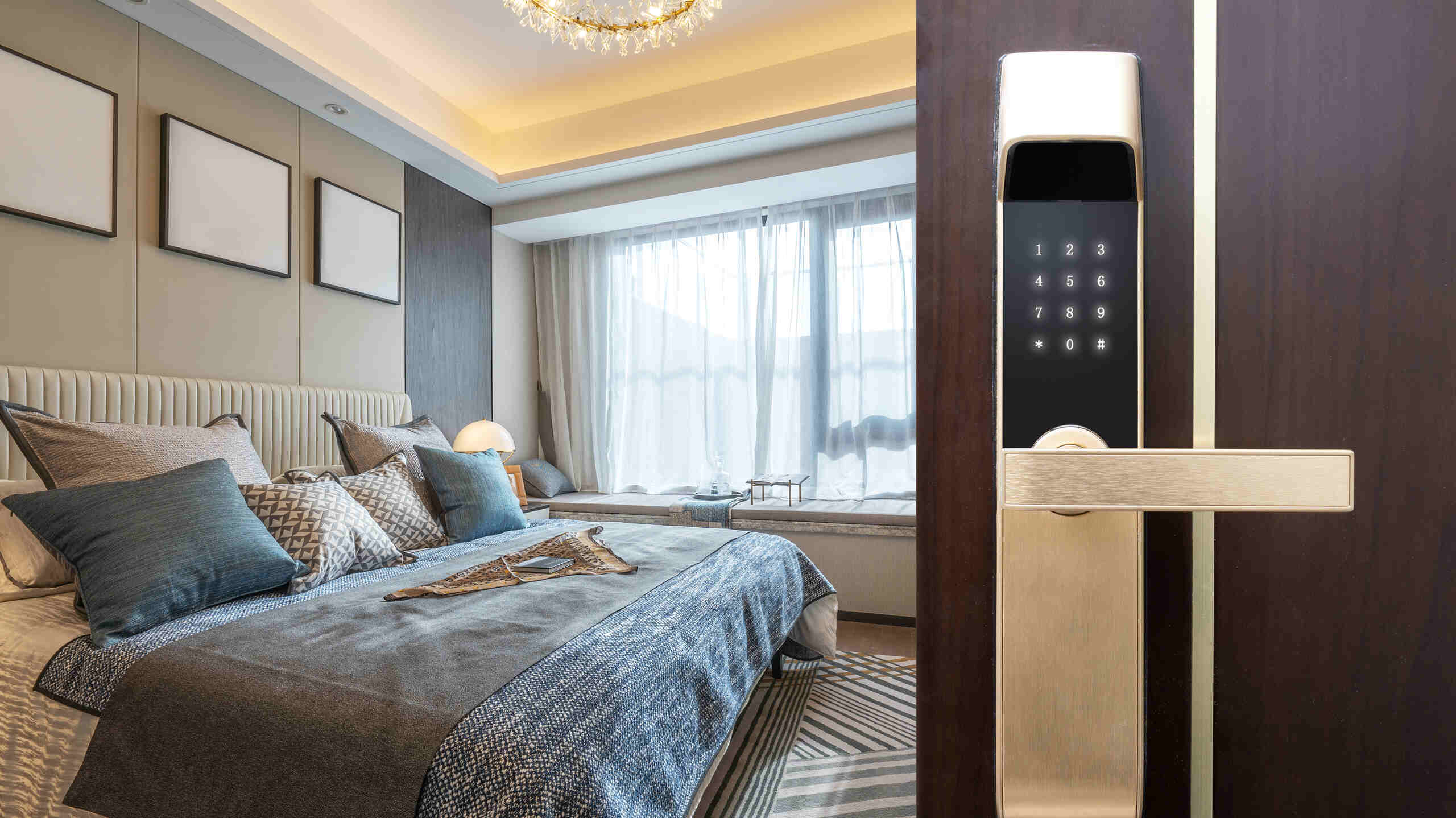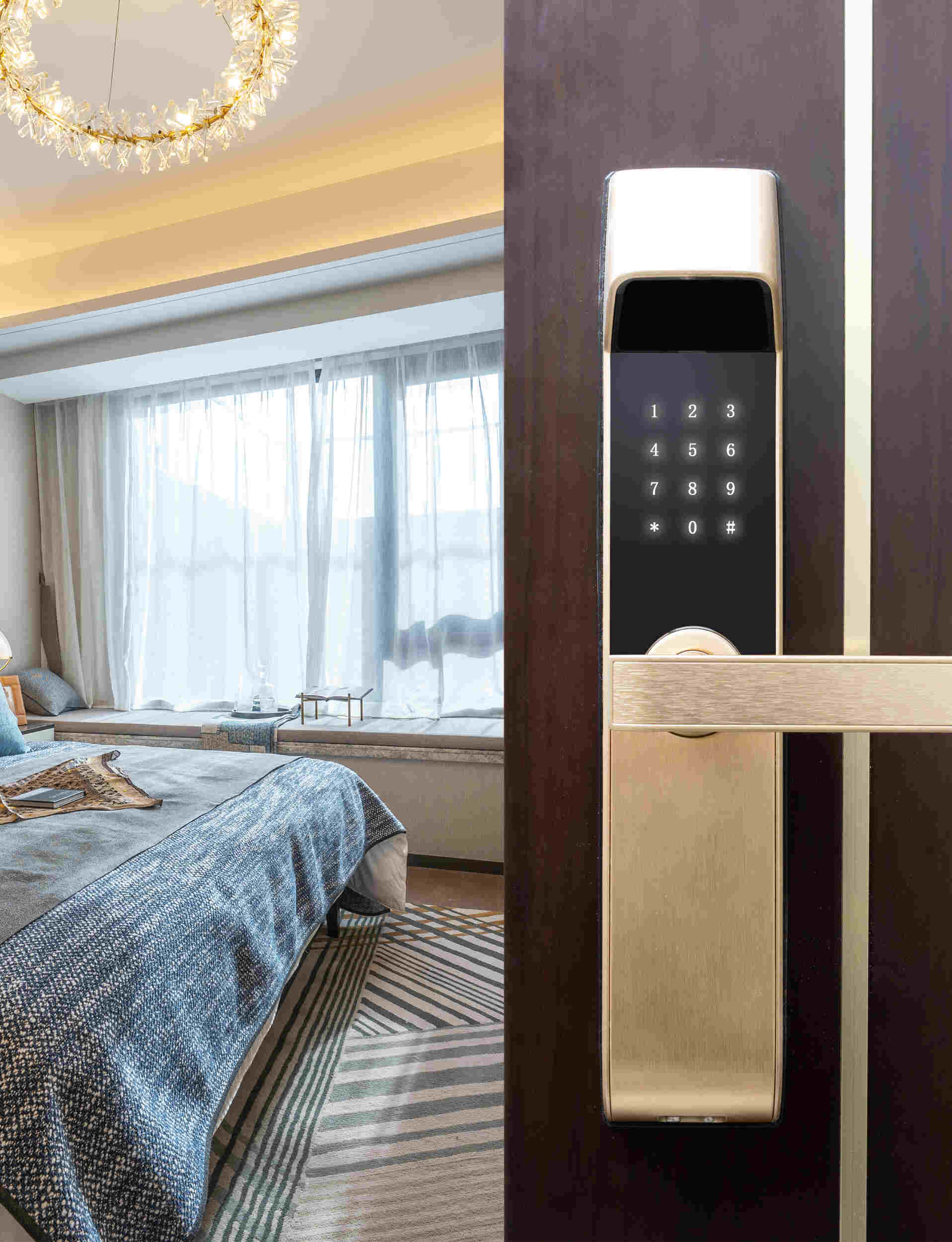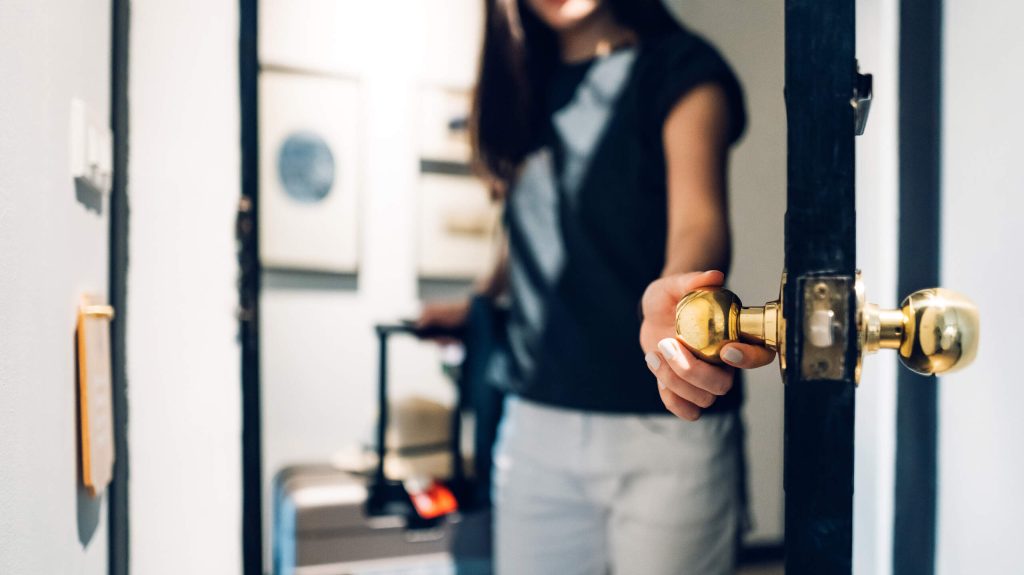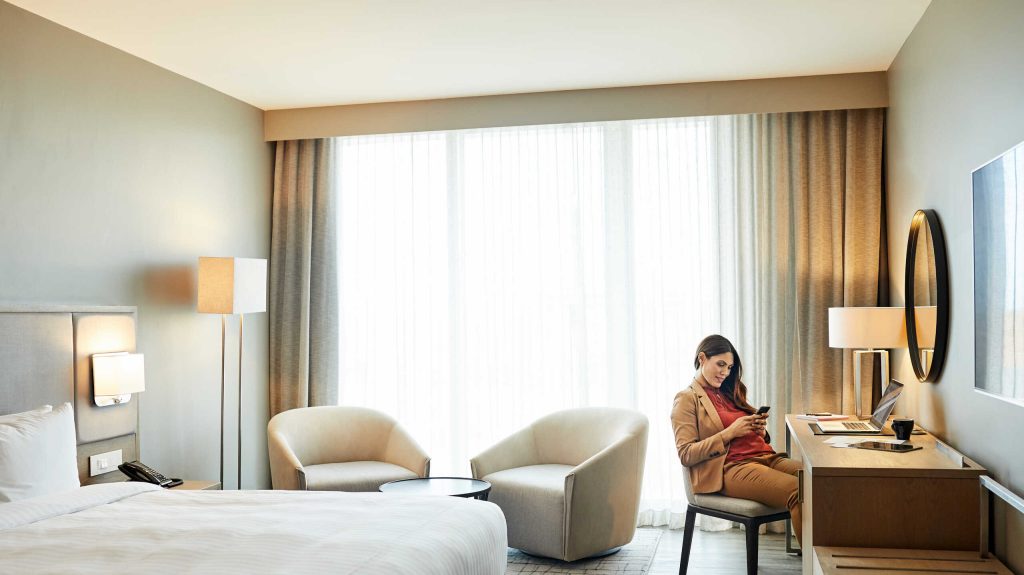


The hotel industry has experienced a radical transformation in recent years, largely driven by rapid technological advancements.
From the moment when guests start researching hotel accommodations and making reservations to when they check out, technology is now an integral part of their journey and shapes their experience.
For current and aspiring hotel professionals, including those studying degrees in hospitality at a hotel management school like Glion, exploring the role of technology within a hospitality business is essential.
Embracing technology opens doors to innovative opportunities and will equip you with crucial knowledge and skills to navigate this exciting and dynamic industry in an ever-changing digital landscape.
Here we’ll look at different technological innovations propelling the hotel industry and guest experience into a new era of excellence.
What is the role of technology in the hotel industry?
Technology is increasingly important in the hotel industry, especially when catering to business travelers’ needs.
Top luxury hotel brands like Four Seasons and major operators like Marriott and Hilton are already investing heavily in the latest technology to enhance guest experiences.
Everything from online booking forms and mobile check-ins to mobile apps, personalized concierge services, and in-room automation has revolutionized how guests interact with hotels.
Guests can now make reservations with just a few taps on their smartphones, access information about available services, and customize accommodation preferences.
Technology has also enhanced operational efficiency enabling those working in hotel management to streamline processes, automate tasks, and inform data-driven decisions. With new advances, technology continues to shape the industry, increase expectations, and push hotels to innovate.
World-beating education from a first-class hospitality school
Our hospitality management degree gives you the skills and expertise to launch your career and succeed in today’s innovative and dynamic hotel industry
Bachelor degree in hospitality management
Why is technology important in the hotel industry?
Technology plays a complex and multi-layered role in the hotel industry, impacting many areas of hotel operations and guest experiences. Some of the key ways technology is important in the hotel industry include the following.
- Streamlining operations: Technology can streamline and automate operational tasks, including reservations, check-ins, and check-outs.
- Enhancing guest experience: Hotels can analyze data to enhance guest experiences through personalized services. In-room technologies like smart TVs, digital room controls, and high-speed internet offer convenience and entertainment.
- Efficient communication: Technology enables effective communication between guests and hotel staff. Mobile apps and messaging platforms allow guests to make requests, order services, or provide immediate feedback for a prompt response.
- Revenue management: Hotels can optimize revenue through dynamic pricing and inventory management and analyzes market trends and demand patterns to adjust prices in real-time, maximizing revenue potential
- Sustainability and energy efficiency: Technology can assist sustainability with energy management systems. Green technology can control lighting and temperature, reducing energy consumption, and minimizing waste.
- Marketing and distribution: Technology enables hotels to market their offerings to a wider audience, including online travel agencies (OTAs), hotel booking platforms, and social media.
- Data analysis and insights: Hotels can collect and analyze guest data to understand guest preferences, improve operational efficiency, and make informed decisions.
Technology can be a key factor for those considering investing in hotels, as it plays a significant role in attracting and satisfying guests, maximizing profitability, and driving revenue growth.
If you’re interested in a career in hospitality, hotel management internships will give you valuable exposure to the vital role technology plays in the industry.
You’ll see how technology is used to improve guest services and operational efficiency and how technology is transforming the modern hotel landscape.
Enhancing guest experience through technology
Mobile technology has transformed the hotel check-in process, allowing guests to avoid long queues and enjoy a more seamless arrival.
Thanks to mobile apps and self-service kiosks, guests can complete check-in before they arrive, select their preferred room, and use their smartphones as digital keys to access their accommodation.
This revolutionary hotel check-in experience saves guests time and offers greater convenience while giving them more control over their stay.
Smart room technology is also transforming traditional hotel rooms into intelligent guest spaces that cater to guests’ comfort and convenience. Smart devices and Internet of Things (IoT) technology enable guests to control the temperature, lighting, and entertainment systems for a personalized and comfortable stay.
Hotels can also utilize guest data to anticipate guest needs and provide tailored recommendations, from bespoke dining suggestions and spa treatments to local attractions.
They can also offer personalized promotions to guests to enhance the overall experience and create a sense of individualized attention. Feedback and reviews can be used to improve services, address concerns, and improve guest experience.
How does mobile technology improve the check-in process in hotels?
Mobile technology has made hotel check-in faster with apps for providing information, verifying identity, and making choices in advance, while mobile key solutions mean guests don’t need physical keycards. This can save time and help hotels to allocate resources more efficiently.
What are some examples of smart room technology in hotels?
Smart room technology in the hotel industry includes innovative features designed to enhance guest convenience, comfort, and overall hotel experience by catering to their unique needs and preferences. Here are some examples of smart room technology in hotels.
Voice technology
Smart speakers like Google Home and Alexa are increasingly common in hotel rooms, letting guests control various room functions through voice commands.
For example, guests can use their voice to control the lights, television, temperature, and music in their hotel rooms and even use it to request hotel services.
Automated room controls
Smart room systems and automation technology in the hotel industry let guests personalize room controls such as the water temperature, room temperature, lights, curtains, and blinds to create a personalized, comfortable, and energy-efficient room.
Virtual assistants and chatbots
Some hotels use virtual assistants or chatbots through voice-activated devices or mobile apps, which guests can interact with to request information, make service requests or receive recommendations.
IoT integration
Hotels can use IoT (Internet of Things) to connect devices in the room, allowing seamless communication and automation.
For instance, guests can use a mobile app to request room service, control room settings, or receive notifications when housekeeping has finished cleaning their room.
How does data analysis enhance personalized services in hotels?
Data analysis enhances personalized hotel services by utilizing guest information to tailor guest experiences. It enables hotels to gather valuable insights into guest preferences to create customized offerings.
Hotels can use guest data to anticipate their needs and deliver personalized recommendations. Hotels can also use data analysis to optimize operations, identify trends and predict demand, driving more efficient service and enhanced guest experience.
Streamlining operations and efficiency with technology

Hotels can use technology to streamline their operations and improve efficiency in the following ways.
Property management systems (PMS)
A property management system streamlines hotel operations by automating and centralizing key hotel processes such as reservations, check-ins and check-outs, room allocations, billing, and inventory management.
PMS software integrates with other hotel systems like housekeeping, accounting, and revenue management to create seamless data flow and provide real-time updates.
It also supports guest communication and allows for personalized services and automated messaging. In a nutshell, PMS enhances efficiency, simplifies hotel operations, reduces errors, improves guest satisfaction, and enables hotels to provide a seamless and coordinated guest experience.
Hotel automation
Automation technologies optimize processes and eliminate the need for manual tasks. For instance, robotic process automation (RPA) can automate repetitive tasks like report generation, data entry, and invoicing, enabling staff to focus on more complex and guest-focused tasks.
Automation also provides guests with self-service options and personalized interactions via mobile apps or chatbots. Automation systems can also monitor and control energy usage, HVAC systems, and lighting to improve energy efficiency and save costs.
Data analytics
Data analytics helps hotels make informed decisions and optimize hotel operations. By analyzing data from booking patterns, guest feedback, online reviews, occupancy rates, and revenue, hotels can acquire valuable insights into market trends, guest preferences, and operational performance.
This enables managers to make smarter decisions regarding staffing, marketing strategies, pricing, inventory management, and guest services. Data analytics can inform and empower hotels across most areas of their operations, to improve performance and deliver an exceptional guest experience.
Elevating guest experience and personalization
Elevating the guest experience and offering personalized services is key in today’s hotel industry, and technology plays a vital part. Here are some ways technology in the hotel industry is enhancing guest experience and personalization.
- Bookings, check-in and digital key systems: With technology, guests can select preferences before they arrive and go straight to their room.
- Enhancing in-room amenities with IoT Devices: IoT and smart devices give guests unprecedented control over room facilities.
- AI-powered chatbots and virtual assistants: Instant information and support.
- Recommendations, tailored marketing and offers: With data analysis, hotels can understand guest behaviors and preferences, enabling personalized recommendations, along with relevant promotions and rewards.
What are some examples of IoT devices used to enhance the guest experience?
Hotels use IoT devices to give guests personalized control, convenience, and connectivity during their stay, enhancing the overall guest experience. Here are some examples.
- Smart thermostats allow guests to control the climate and temperature in their hotel rooms using voice commands or their smartphone for personalized comfort.
- Voice-activated assistants provide information to guests and allow them to control room features, set alarms, and play music hands-free.
- IoT-enabled smart lighting systems give guests the ability to adjust brightness, ambiance, and color to suit their preferences and mood.
- Smart mirrors display news headlines, weather updates, and personalized information.
- Connected entertainment systems let guests stream the content they want, access personalized playlists, and use voice commands to control their entertainment experience.
- IoT-enabled mini-bars and refrigerators can monitor inventory levels and automatically restock items when required.
Master hotel management at a world-renowned hospitality school
Prepare for international success with first-class teaching, professional internships, and learning about innovation from globally renowned experts
Hotel management masters
How do AI-powered chatbots assist guests in hotels?
AI-powered chatbots assist hotel guests by providing instant and personalized assistance 24/7. They can answer common questions, provide information, help with reservations, and recommend amenities such as restaurants and attractions.
The language processing capabilities of AI chatbots allow them to understand and respond to guests’ queries and requests efficiently and accurately.
How do hotels use data analysis to provide personalized recommendations?
Hotels use data analysis to provide personalized recommendations by analyzing guest data, including previous booking history, preferences, and behavior.
This enables them to identify patterns and trends which can help tailor recommendations and deliver personalized experiences.
What benefits do guests enjoy from personalized marketing in hotels?
Personalized hotel marketing provides guests with offers and promotions that closely match their interests and preferences for a more engaging guest experience.
It also enables hotels to provide more targeted recommendations and suggestions to help guests discover services and amenities they may enjoy. Personalized marketing can help to foster a sense of loyalty and inspire guests to return.
Advancements in guest safety and security

Technology has played a key role in enhancing safety and security, providing guests with peace of mind during their stay. Here are some key advancements in this area.
- Smart security systems: Hotels are increasingly integrating smart security systems that use advanced technologies such as motion sensors, video surveillance, and access control systems.
- Contactless payment solutions and digital wallets: Contactless payment solutions and digital wallets let guests make secure payments without physical contact, improving convenience and reducing the risk of fraud. Guests can use this technology to make payments with their smartphones or wearable devices for seamless transactions.
- Biometric technology: Fingerprint technology and facial recognition allow secure hotel access and identity verification. It provides a more convenient and reliable method for guests to check in, access rooms, or use hotel facilities.
- Machine learning for fraud detection: Machine learning algorithms can detect and prevent fraud by analyzing patterns and anomalies to identify suspicious transactions. This enables hotels to enhance security measures and better protect guests from identity and financial risk.
- Enhanced data security: Hotels are prioritizing data security measures by implementing cybersecurity protocols and encryption techniques to protect guests’ personal and financial information.
What are some examples of contactless payment solutions used in hotels?
There are several types of contactless payment solutions used in hotels. Here are a few popular examples.
- Near-field communication (NFC) technology: This contactless payment solution lets hotel guests make payments by tapping contactless cards or smartphones on payment terminals.
- Mobile payment apps: Mobile payment apps such as Google Pay, Apple Pay, and Samsung Pay allow guests to make contactless payments with their smartphones.
- QR code payments: QR code-based payment solutions enable guests to use their smartphones to scan QR codes. The payment is then securely processed through the guest’s mobile app linked to their bank account.
- Mobile wallets: Some hotels offer their own mobile wallet apps, enabling guests to credit the app and use it to make payments for services within the hotel.
- Virtual payment cards: Some hotels offer virtual payment cards that are linked to reservations. Guests can then use the card to make contactless payments during their stay, without needing a credit card.
How is biometric technology used for secure access in hotels?
Biometric technology uses unique physiological or behavioral characteristics such as iris patterns, fingerprints, or facial recognition to verify a hotel guest’s identity. Hotels can use this technology across access points, such as guest rooms, entrances, and restricted areas.
Biometric technology allows hotels to eliminate the need for physical keys or access cards and reduces the risk of unauthorized access or someone using another person’s credentials.
How does machine learning help hotels detect and prevent fraud?
Machine learning helps hotels detect and prevent fraud by analyzing data and identifying patterns or anomalies that point to fraudulent activities. With algorithms trained on historical data, machine learning systems can learn to spot payment irregularities or suspicious booking patterns.
The system can alert hotel staff to potentially fraudulent activities in real time, enabling intervention.
What measures do hotels take to ensure guest data privacy and security?
Hotels take various measures to ensure guest data privacy and security, including:
- Data encryption to protect sensitive information during storage and transmission
- Secure authentication methods such as two-factor authentication to prevent unauthorized access to data
- Access control measures to limit access to guest data
- Staff training on data privacy and security practices
- Implementing data retention policies that specify how long guest data can be stored and when it should be securely disposed of
- Secure Wi-Fi networks to protect guest data while connected to the hotel’s internet
- Security audits to assess the effectiveness of the hotel’s data privacy and security measures
- Maintenance of transparent data privacy and consent policies
- Compliance with data protection regulations
- Incident response plans and procedures to effectively deal with any potential security incidents or data breaches
What are some emerging technology trends in the hotel industry?

Hotel technology trends continue to shape the hotel industry, offering new possibilities and enhancing the guest experience. Here are some notable technology trends and a glimpse into the future outlook.
Augmented reality (AR) and virtual reality (VR) experiences
AR and VR technologies positively transform how guests interact with hotels. AR enhances guest experiences by providing interactive maps, virtual tours, and real-time information. VR offers immersive experiences that enable guests to explore hotel amenities before booking. These technologies can entice guests and set hotels apart from competitors.
Voice-activated assistants and smart room controls
Voice-activated assistants such as Amazon’s Alexa are becoming increasingly common in hotel rooms. They allow guests to control various elements of their stay, from their room environment to requesting hotel services, by using voice commands.
Blockchain technology
Blockchain technology can potentially transform the hotel industry’s transparency and security. Hotels can leverage blockchain to enhance data security, streamline guest identity verification, and ensure transaction transparency. Blockchain-based loyalty programs can also give guests more control over their rewards.
Artificial Intelligence
Hotels increasingly use AI to automate tasks, provide instant and personalized guest assistance, and deal with inquiries, reservations, and recommendations. Hotels can also use data analytics and machine learning to predict demand, optimize pricing and deliver personalized marketing.
Big data
Hotels are increasingly leveraging the power of big data to collect and analyze huge amounts of information from many different sources, such as booking patterns, guest preferences, and social media interactions.
This data gives hotels unique insight into guest behavior and enables them to make data-driven decisions, personalize marketing campaigns, improve operational efficiency, and optimize pricing strategies.
Robotics and automation
Hotels are using robots to assist with various tasks, including concierge services, housekeeping services, and room service delivery. Robots can also interact with guests, providing information about amenities and delivering items to rooms.
What can we expect regarding technological advancements in the future of hotels?
We can expect to see more technological advances in the hotel industry. AI-powered chatbots, IoT integration, VR/AR experiences, blockchain security, advanced data analytics, robotics and automation, voice-activated smart rooms, sustainable practices, contactless solutions, and hyper-personalized guest journeys will become even more sophisticated.
This will enable hotels to optimize operations and enhance guest experience like never before.
Generative AI will become more dominant, enabling hotels to customize virtual rooms, create personalized marketing, develop bespoke menus, enhance chatbot interactions, and engage guests in more creative and novel ways. Generative AI has huge potential to revolutionize hotel operations and guest experiences and set new standards.
Summing up
Technology already plays a key role in the hotel industry and is increasingly responsible for reshaping guest experiences and transforming hotel operations. From smart room technology to personalized check-ins and automation, technology improves guest convenience, comfort, and satisfaction.
It streamlines operations, improves efficiency, and enables hotels to deliver truly personalized services.
Technology is also helping to improve guest safety and security through biometric technology, smart security systems, and contactless payments. With emerging trends like augmented reality, blockchain, and voice-activated assistance, the future of hotel technology promises even more exciting and innovative possibilities.
Photo credits
Main image: imaginima/E+ via Getty Images
















